Best cultural festivals worldwide – Embark on a global odyssey of vibrant cultural festivals, where traditions intertwine with modernity, showcasing the rich tapestry of human expression. From ancient rituals to contemporary celebrations, these festivals offer an immersive experience, fostering cross-cultural exchange and preserving invaluable heritage.
Prepare to be captivated by the kaleidoscope of colors, the rhythm of music, and the warmth of local hospitality as we explore the most renowned cultural festivals worldwide, destinations where cultures come alive and memories are made.
Cultural Festival Overview
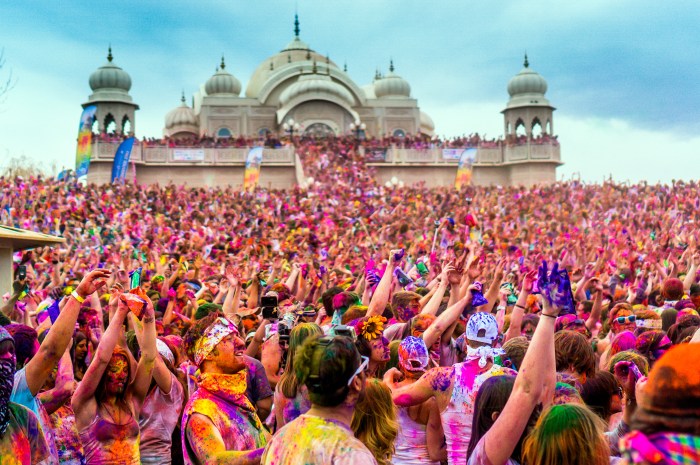
Cultural festivals are vibrant celebrations that showcase the unique traditions, heritage, and diversity of communities worldwide. These events provide a platform for cultural exchange, promoting understanding and appreciation among people from different backgrounds.
Cultural festivals encompass a wide range of events, including music festivals, dance performances, art exhibitions, traditional ceremonies, and food fairs. They often feature local artisans, performers, and culinary experts who share their skills and traditions with attendees.
Global Impact
Cultural festivals have a profound impact on local and global communities. They contribute to economic growth by attracting tourism, supporting local businesses, and preserving cultural heritage. Festivals also foster social cohesion, bringing people together to celebrate their shared values and traditions.
On a global scale, cultural festivals promote intercultural dialogue and understanding. They provide opportunities for people from different cultures to interact, learn from each other, and break down stereotypes.
Types of Cultural Festivals
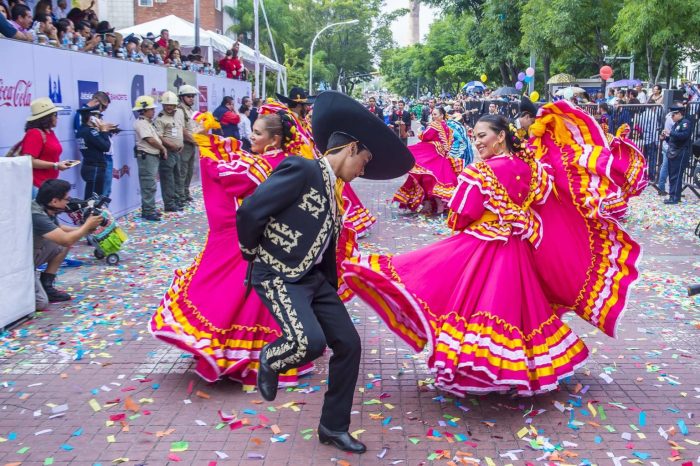
Cultural festivals can be categorized into various types based on their themes, traditions, and objectives. These festivals showcase the unique heritage, beliefs, and artistic expressions of different cultures around the world.
Thematic Festivals
Thematic festivals revolve around a specific theme or concept, often related to a particular aspect of culture. These festivals may focus on music, dance, art, literature, food, or history.
- Music Festivals: Celebrate various musical genres, from classical to contemporary, showcasing performances by renowned artists and emerging talents.
- Dance Festivals: Highlight different dance forms, including traditional, modern, and experimental, providing a platform for dancers to showcase their skills.
- Art Festivals: Exhibit works of visual art, including paintings, sculptures, installations, and photography, showcasing the creativity and talent of local and international artists.
- Literary Festivals: Bring together authors, poets, and readers to discuss literature, share ideas, and celebrate the written word.
- Food Festivals: Showcase culinary traditions, offering a diverse range of dishes, cooking demonstrations, and tastings.
- Historical Festivals: Commemorate significant historical events, preserving cultural heritage and providing an immersive experience of the past.
Global Festival Destinations

The world is brimming with vibrant cultural festivals that showcase the unique traditions and heritage of different regions. Here are some top global destinations renowned for their exceptional cultural festivities:
These festivals offer a kaleidoscope of experiences, from colorful parades and traditional music to mouthwatering cuisine and immersive cultural performances. Immerse yourself in the vibrant atmosphere, connect with locals, and create memories that will last a lifetime.
Top Festival Destinations
| Destination | Festival | Dates | Location | Key Attractions |
|---|---|---|---|---|
| Rio de Janeiro, Brazil | Carnival | February/March | Sambadrome | Samba parades, extravagant costumes, lively music |
| Edinburgh, Scotland | Edinburgh Fringe Festival | August | Various venues across the city | World’s largest arts and culture festival, featuring theater, comedy, dance, and music |
| New Orleans, USA | Mardi Gras | February/March | French Quarter | Parades, jazz music, colorful costumes, and elaborate floats |
| Tokyo, Japan | Sanja Matsuri | May | Asakusa Shrine | Mikoshi (portable shrines) carried through the streets, traditional costumes, and lively music |
| Granada, Spain | Granada International Festival of Music and Dance | June-July | Various venues across the city | World-class performances of classical music, flamenco, and contemporary dance |
| Lisbon, Portugal | Festas de Lisboa | June | Alfama district | Traditional music, street parties, parades, and fireworks |
| Sydney, Australia | Sydney Festival | January | Various venues across the city | International arts and culture festival featuring theater, dance, music, and visual arts |
| Dhaka, Bangladesh | Pohela Boishakh | April | Ramna Park | Bengali New Year celebration with traditional music, dance, and cultural performances |
Cultural Immersion and Authenticity
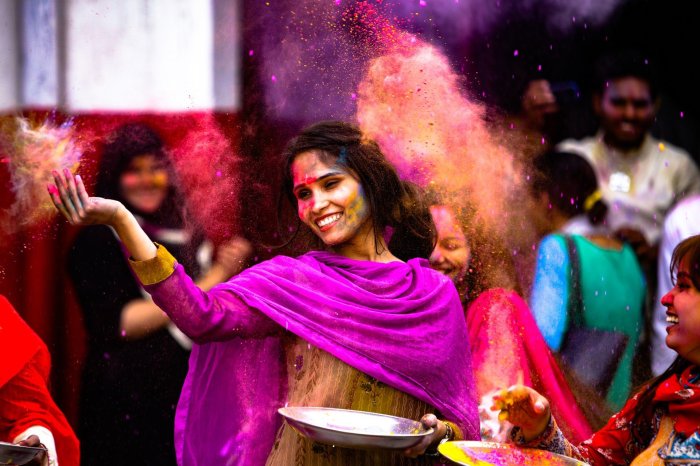
Cultural festivals offer an unparalleled opportunity for travelers to immerse themselves in the traditions and customs of a new place. Authenticity is key to ensuring a meaningful and enriching experience.
Respectful engagement with local customs is paramount. Travelers should take the time to research the festival’s traditions and dress code. Active participation in local activities and conversations fosters genuine connections.
Tips for Respectful Engagement
- Learn basic local phrases to show respect and make connections.
- Avoid disruptive behavior or loud conversations that may offend others.
- Be mindful of cultural sensitivities, such as avoiding touching or taking photos of people without permission.
- Support local vendors and artisans to contribute to the community.
- Dispose of trash responsibly to maintain the festival’s ambiance.
Economic and Social Impact: Best Cultural Festivals Worldwide
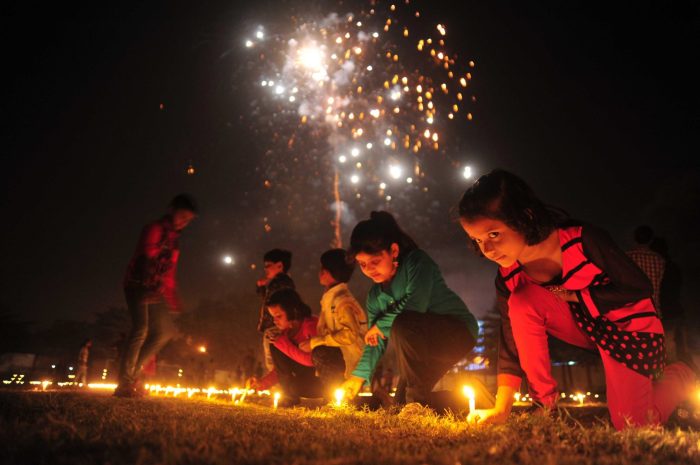
Cultural festivals are powerful drivers of economic and social well-being for local communities. They attract tourists, generate revenue, and create employment opportunities.
Festivals also play a crucial role in preserving cultural heritage and fostering social cohesion. They provide a platform for local artists and performers to showcase their talents, and they help to connect people from different backgrounds.
Tourism and Economic Development
Cultural festivals attract a large number of tourists, both domestic and international. This influx of visitors provides a significant boost to the local economy. Hotels, restaurants, and other businesses experience increased demand, leading to job creation and increased tax revenue. For example, the Edinburgh Fringe Festival, the world’s largest arts festival, generates over £200 million for the Scottish economy each year.
Preservation of Cultural Heritage
Cultural festivals help to preserve cultural heritage by providing a space for traditional arts, music, and dance to be performed and celebrated. They also help to raise awareness of cultural traditions and practices, and they can inspire younger generations to take an interest in their cultural roots. For example, the Jaipur Literature Festival in India celebrates Indian literature and culture, and it has helped to revive interest in traditional Indian storytelling.
Social Cohesion
Cultural festivals foster social cohesion by bringing people together from different backgrounds. They provide a shared space for people to interact, learn about each other’s cultures, and build relationships. This can help to reduce prejudice and discrimination, and it can promote understanding and tolerance. For example, the Glastonbury Festival in England is known for its diverse lineup of music and arts, and it attracts people from all over the world, creating a sense of community and belonging.
Sustainability in Cultural Festivals
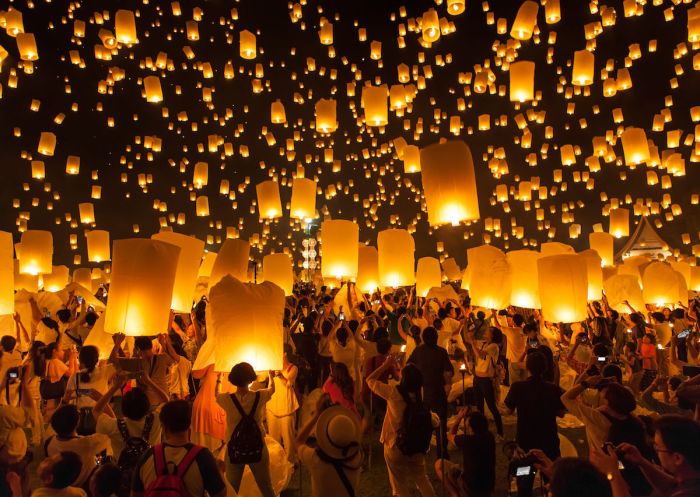
In today’s environmentally conscious world, sustainability has become a paramount concern in cultural festival planning and management. By implementing sustainable practices, festivals can minimize their environmental impact, promote responsible tourism, and ensure the preservation of cultural heritage for future generations.
Adopting sustainable practices can take many forms. One crucial aspect is waste management. By reducing, reusing, and recycling materials, festivals can significantly decrease their environmental footprint. This includes using reusable cups, plates, and utensils, implementing recycling programs, and encouraging attendees to bring their own reusable items.
Cultural festivals offer a unique opportunity to immerse oneself in the rich tapestry of global traditions. From vibrant carnivals in Rio de Janeiro to ancient rituals in the Amazon, the world’s best cultural festivals showcase the diversity and creativity of human expression.
Whether you seek the rhythm of samba or the wisdom of ancient ceremonies, these festivals invite you on an unforgettable journey into the heart of different cultures.
Energy Efficiency
Another important area of sustainability is energy efficiency. Festivals can opt for renewable energy sources such as solar or wind power to reduce their reliance on fossil fuels. Additionally, implementing energy-efficient lighting and appliances can further minimize energy consumption.
For an immersive cultural experience, plan your travels around the best cultural festivals worldwide. To minimize your environmental impact, consider staying in eco-lodges that prioritize sustainable practices. Immerse yourself in local traditions, savor authentic cuisine, and create unforgettable memories while respecting the planet.
Continue your journey to other cultural festivals worldwide, leaving a positive footprint wherever you go.
Transportation and Accessibility
Sustainable transportation is also a key consideration. Encouraging attendees to use public transportation, ride-sharing, or walking can reduce traffic congestion and emissions. Festivals can also provide accessible options for attendees with disabilities to ensure inclusivity.
Local Sourcing and Community Involvement
To promote responsible tourism, festivals can prioritize local sourcing of goods and services. This supports local businesses and reduces the environmental impact associated with transportation. Additionally, involving local communities in the planning and execution of festivals fosters cultural exchange and strengthens community ties.
Education and Awareness
Educating attendees about sustainability is essential. By raising awareness about environmental issues and promoting responsible practices, festivals can inspire attendees to adopt more sustainable behaviors in their daily lives.
Cultural Festival Evolution
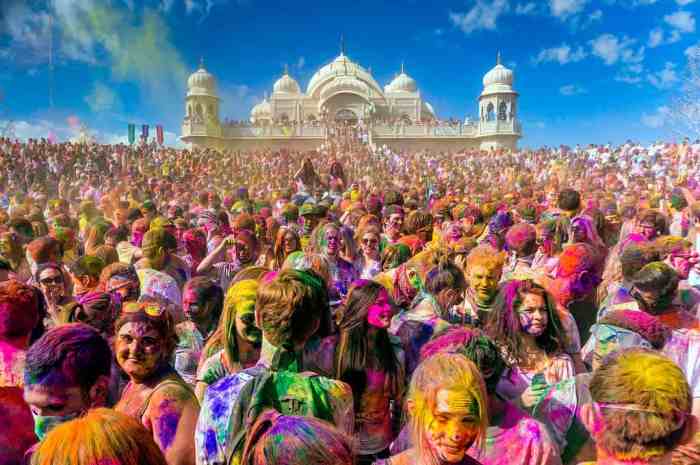
Cultural festivals have undergone a remarkable evolution over time, influenced by globalization, technological advancements, and shifting societal norms.
Globalization has facilitated the cross-pollination of cultures, leading to the incorporation of elements from diverse traditions into festivals. For instance, traditional Japanese festivals now often feature elements of Western pop culture, while Indian festivals have adopted aspects of global cuisine and fashion.
Technology has played a significant role in shaping cultural festivals. Social media platforms allow for wider dissemination of festival information, attracting a global audience. Live streaming and virtual reality experiences enable people to participate in festivals remotely, expanding their reach beyond geographical boundaries.
Social change has also influenced the evolution of cultural festivals. As societies become more diverse and inclusive, festivals are adapting to reflect these changes. For example, many festivals now incorporate programming that celebrates LGBTQ+ cultures, promotes disability awareness, and highlights the contributions of marginalized communities.
Preserving Traditions in a Changing World
Despite these changes, cultural festivals continue to play a vital role in preserving and transmitting traditional customs and beliefs. Festival organizers and participants work to maintain the core elements of their traditions while adapting to changing societal norms. This balance ensures that festivals remain relevant and meaningful while honoring their heritage.
Cultural Exchange and Understanding
Cultural festivals serve as vibrant platforms for cultural exchange and understanding, bringing together people from diverse backgrounds to celebrate and share their unique traditions, beliefs, and artistic expressions. These festivals foster cross-cultural dialogue, promoting empathy, tolerance, and appreciation for the richness and diversity of human cultures.
Fostering Cross-Cultural Dialogue and Collaboration
Cultural festivals provide opportunities for individuals to interact with people from different cultures, breaking down barriers and stereotypes. Through shared experiences, such as traditional performances, art exhibitions, and culinary demonstrations, attendees gain firsthand insights into the lives and perspectives of others. These interactions cultivate mutual respect, understanding, and a sense of global community.
Emerging Trends in Cultural Festivals
The cultural festival landscape is constantly evolving, with organizers seeking innovative ways to engage audiences, preserve cultural heritage, and promote social impact. Here are some key emerging trends:
Technology and innovation: Festivals are increasingly using technology to enhance the attendee experience. This includes mobile apps for wayfinding, interactive installations, and virtual reality experiences that transport attendees to different cultures.
Sustainability
Sustainability is becoming a top priority for cultural festivals. Organizers are adopting eco-friendly practices, such as reducing waste, using renewable energy, and partnering with local businesses to support the community.
Immersive experiences, Best cultural festivals worldwide
Festivals are creating immersive experiences that allow attendees to fully engage with different cultures. This includes interactive workshops, traditional performances, and immersive exhibitions that showcase the history and traditions of the featured culture.
To experience the world’s most captivating cultural festivals, embark on a family vacation to destinations that celebrate rich traditions. Immerse yourselves in vibrant street parades, traditional music, and local cuisine. These best family vacation spots offer an unforgettable blend of cultural discovery and family-friendly fun, ensuring that your trip is not only educational but also filled with cherished memories.
Community engagement
Cultural festivals are increasingly involving local communities in their planning and execution. This ensures that the festival is relevant to the community and that it benefits local businesses and residents.
End of Discussion
In the realm of cultural festivals, the world transforms into a stage where diversity takes center stage. These vibrant celebrations connect us to our roots, promote understanding, and enrich our lives. As we bid farewell to this exploration, let the echoes of these festivals resonate within us, inspiring a deeper appreciation for the beauty and diversity of human culture.
Questions and Answers
What are the benefits of attending cultural festivals?
Cultural festivals offer a myriad of benefits, including the opportunity to experience diverse traditions, foster cross-cultural understanding, and contribute to local economies.
How can I respectfully engage with local customs during cultural festivals?
To respectfully engage with local customs, it is essential to research local traditions, dress appropriately, and ask permission before taking photographs.
What are some of the most popular cultural festivals worldwide?
Popular cultural festivals worldwide include the Rio Carnival, the Holi Festival of Colors, the Oktoberfest, and the Glastonbury Festival.